Subscribe to the our newsletter to receive latest news straight to your inbox.
How to Make Children Perform Better at School?
Believe It or Not: 10 Myths on Studying in the USA
How To Handle The Last Minute Moving – Helpful Tips
5 Best Way To Find House Cleaning Services
Things worth Considering for How to get into Digital Marketing
What to Do When Children Misbehave?
Ultimate San Francisco CITY GUIDE for Youngsters: Places to See by Car
How Alcohol Affects Athletes?
Reasons You Are Susceptible to Mental Problems
TOP 5 MINI CARS For Solo Travelers
Data Management Challenges Facing Small Business Owners
Places in Calgary You CANNOT SEE Without a Car
Negative Impacts of Air Pollution
What Should Be Included In The Home Inspection Checklist
How Aging Athletes Can Stay in Shape?
How Can a Professional Assignment Help Contribute to Your Success as a Student?
HOW DO I PREPARE FOR MY FIRST YEAR OF LAW SCHOOL?
How to Prevent Regression on Autistic Children?
How Companies Can Boost the Hiring Process?
3 Tips to Remove Profile Pictures from Zoom
Things You Should Know About Muscle Brain
How Parents Can Gain Respect From Children?
How Sex Can Improve Your Period & How to Do It Better
Six Dental Consideration Tips to Prevent Your Child from Getting Braces
The World of Cars: 10 Amazing Modern Innovations
The Impact The Art Deco Era Had On Different Industries
How to Prepare Children for the First Day of Preschool?
Benefits and Risks of Sunlight
How Athletes Should Deal With Anxiety
Tips on How To Buy The Right Refrigerator For Yourself
Health Benefits of Memory Foam Mattresses
Common Types of Childhood Anxiety
Luxury Driving: 6 Chic Premium Cars to Feel Like a Celebrity
How Athletes Can Recover From Knee Replacement Surgery?
How Parents Should Deal With Fussy Eaters At Home?
Travel Medical Insurance: All the basics you need to know
Seven Ways to Become Productive Parents
How to Laser Target Your Ideal Audience Using Market Research?
What should always be in a car on a long journey?
Festival of Lights: Buy These Exciting Smartphones in 2019
How to Price Your Car? | Helpful Guidelines
How to Make an Effective Parenting Plan?
How Alcohol Causes You To Gain Weight?
Men, Can These 7 Intimacy Tips Save Your Sex Life?
First-Time Home Owner: Affordable Interior Design Ideas
Why Parents Need to Maintain Traditional Values at Home?
Six best life hacks for the motorists
Why Teenagers Want to Be Loved?
How Digital Marketing Company Can Help Your Business
Ways to Survive a Hot Summer Day
Long and Spacious: 5 Most Luxurious Estate Cars
Benefits of Coffee for Professional Athletes
Easy Driving: 10 Options that Should be Included in Each Modern Car
3 Ways to Improve Your Body Positivity
Beneficial Herbs for Athletes
Why Teenagers Become Rebellious So Easily?
How To Choose The Best Synthetic Grass For Your Garden
Health Risks of X-Ray Scans
Benefits of HGH for Athletes
The Economic System of the United States of America
Reasons Children Become Fussy Eaters
These Habits May Be Making Your Period Worse
How to Control The Way Children Use the Internet?
Benefits of Yoga for Athletes
TOP 7 Ways to Become BETTER DRIVER!
Georgia Cabins With A Water View Are Like A Home Away From Home
What to See in Portugal? 5 Amazing Sights of Algarve
4 Best Tips To Follow For Quick Lift Repair
SEVEN STRATEGIES TO IMPROVE YOUR WRITING SKILLS

Importance of Protein and Vitamin D for Athletes
Studies have shown that professional athletes need much protein to sustain their performance. This is especially true for sports that require athletes to have more muscle mass, such as bodybuilding and boxing. However, it can be tricky to know how much protein that you need as a professional athlete. Protein is the building block of…
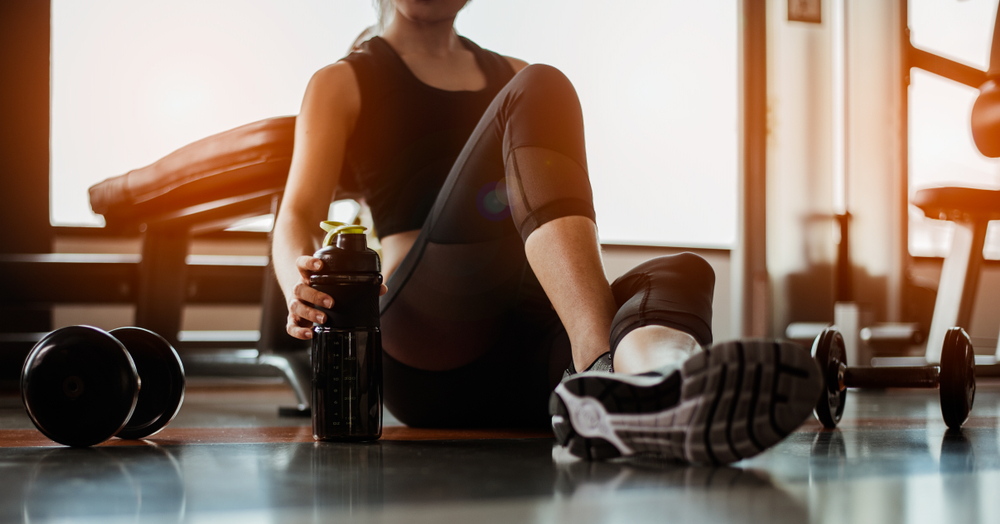
Studies have shown that professional athletes need much protein to sustain their performance. This is especially true for sports that require athletes to have more muscle mass, such as bodybuilding and boxing. However, it can be tricky to know how much protein that you need as a professional athlete. Protein is the building block of our body and it’s consisted of different amino acids. Protein is essential to make tendons, muscles, bone and various tissues inside our body. Studies have shown that professional athletes require more protein compared to those who have sedentary lifestyle. Protein is essential for repairing and rebuilding our damaged muscles. It also optimizes the storage of carbohydrate. On average, athletes need to consume 1.7 grams per kilogram of body weight.
So, an athlete who weighs 100kg will need 170 grams of protein each day. For better absorption, it should be separated into six meals that are roughly spaced 2 hours apart. It means that each of your meal should contain nearly 30 grams of protein. Endurance athletes should consume more protein than strength athletes as a way to prevent protein catabolism. The demand of high endurance on our body can be quite extreme, so you need to prevent the catabolic state. Your body enters catabolic state when it starts to break down muscles. When it happens, risks of injuries will be higher and your immune system will degrade. So, regardless of your type of sports, it will be safe to keep protein consumption at 1.7 grams per kilogram of bodyweight each day.
You may get protein from difference sources and it’s often recommended to get your protein from fish, eggs and red meat. Protein supplements are also available, if you want to get enough protein, but want to limit calories intake. Other sources of protein include cheese, skinless chicken breast and lean ground turkey. Protein-rich fish include cod, pollock, flounder, salmon, swordfish, sea bass and tuna.
Other than protein, athletes should also get enough vitamin D. During summer months, it is a good opportunity to absorb more sunlight and let our body produces vitamin D. One factor that athletes need to focus on is that they should have good immune system. Significant physical activity may reduce immune system, as out body is stressed. T-cells are needed by our body to seek and destroy potential harmful foreign invaders that enter our body.
Vitamin D is needed to activate T-cells in our body and to enable them to start looking for external pathogens, such as viruses and bacteria. So, if you don’t have enough vitamin D, T-cells in your body will remain dormant and unaware of the possibility of foreign threats. When T-cells are exposed to foreign pathogens, they will extend a receptor that looks for vitamin D. Once vitamin D is found, T-cells will be activated and start attacking pathogens. If you don’t have enough vitamin D in your blood, T-cells won’t be able to mobilize and your immune system will suffer. If you get ill, your sports performance will decline.
Recommended Articles
-
How Parents Should Deal With Fussy Eaters At Home?
5 years ago6295 views -
Benefits of Yoga for Athletes
6 years ago6233 views -
Health Benefits of Memory Foam Mattresses
5 years ago6483 views -
First-Time Home Owner: Affordable Interior Design Ideas
11 months ago2175 views -
How Companies Can Boost the Hiring Process?
2 years ago2293 views -
How to Laser Target Your Ideal Audience Using Market Research?
3 years ago3858 views
Leave a Reply
You must be logged in to post a comment.






















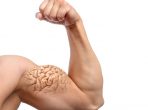

































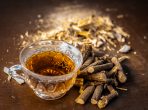



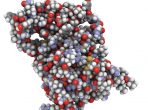











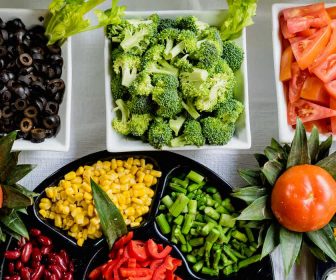








2secretive
2unattractive
doctoral dissertation defense https://professionaldissertationwriting.org/
creative writing lindenberg https://professionaldissertationwriting.com/
help tutor https://helpwithdissertationwritinglondon.com/
thesis dissertation https://dissertationwritingcenter.com/
doctoral dissertation defense https://dissertationhelpexpert.com/
master dissertation https://accountingdissertationhelp.com/
dissertation literature review help https://examplesofdissertation.com/
online dissertation help veroffentlichen https://writing-a-dissertation.net/
mba dissertation writing services https://bestdissertationwritingservice.net/
dissertation writing services reviews https://businessdissertationhelp.com/
online dissertation help veroffentlichen https://customdissertationwritinghelp.com/
dissertation literature review https://writingadissertationproposal.com/
what is a dissertation https://dissertationhelpspecialist.com/
defending your dissertation https://dissertationhelperhub.com/
raging bull online casino https://download-casino-slots.com/
online casino usa real money xb777 https://onlinecasinofortunes.com/
casino online terpercaya https://newlasvegascasinos.com/
minimum deposit online casino https://trust-online-casino.com/
online casino real money https://onlinecasinosdirectory.org/
instant withdrawal online casino usa https://9lineslotscasino.com/
casino gta online https://free-online-casinos.net/
hallmark online casino https://internet-casinos-online.net/
foxwood online casino https://cybertimeonlinecasino.com/
star casino online https://1freeslotscasino.com/
u s online casino https://vrgamescasino.com/
vegas casino online no deposit bonus codes https://casino-online-roulette.com/
las vegas online casino https://casino-online-jackpot.com/
real money online casino https://ownonlinecasino.com/
sugarhouse casino online sportsbook https://all-online-casino-games.com/
rivers online casino real money https://casino8online.com/
free vpn servers https://shiva-vpn.com/
best vpn for chromebook https://freehostingvpn.com/
best vpn for laptop https://ippowervpn.net/
10 best vpn services https://imfreevpn.net/
best free vpn for chrome https://superfreevpn.net/
best vpn for speed https://free-vpn-proxy.com/
https://gay-singles-dating.com/
gay black dating https://gayedating.com/
gay fetish dating https://datinggayservices.com/
relative dating https://freephotodating.com/
free online chat and dating sites https://adult-singles-online-dating.com/
dating online best websites https://online-internet-dating.net/
danting site https://speedatingwebsites.com/
singles near me https://datingpersonalsonline.com/
international dating site reddit https://wowdatingsites.com/
adult online https://lavaonlinedating.com/
plenty of fish dating https://freeadultdatingpasses.com/
local singles https://virtual-online-dating-service.com/
find free dating site https://zonlinedating.com/
meet girls for free https://onlinedatingservicesecrets.com/
ruby fortune online casino https://onlinecasinos4me.com/
online casino no verification withdrawal usa https://online2casino.com/
casino games online https://casinosonlinex.com/
gay daddy cam chat https://newgaychat.com/
free gay bi chat lines in seattle wa https://gaychatcams.net/
gay men chat https://gaychatspots.com/
gay chat 877 *** 7000 https://gay-live-chat.net/
gay chat cams https://chatcongays.com/
gay phont chat https://gayphillychat.com/
gay chat rooms mason city ia https://gaychatnorules.com/
gay and bi male text chat https://gaymusclechatrooms.com/
free cam to cam gay chat https://free-gay-sex-chat.com/
gay text chat app https://gayinteracialchat.com/
dirty gay video chat free https://gaymanchatrooms.com/
college paper writers https://term-paper-help.org/
paying someone to write a paper https://uktermpaperwriters.com/
order papers online https://paperwritinghq.com/
write my papers discount code https://writepapersformoney.com/
paper writing services online https://doyourpapersonline.com/
buy a college paper https://top100custompapernapkins.com/
websites that write papers for you https://researchpaperswriting.org/
best paper writing services https://cheapcustompaper.org/
pay someone to write paper https://buyessaypaperz.com/
papers help https://mypaperwritinghelp.com/
help with filing divorce papers https://writemypaperquick.com/
help paper https://essaybuypaper.com/
writer paper https://papercranewritingservices.com/
purchase college papers https://premiumpapershelp.com/
do my papers https://ypaywallpapers.com/
i need someone to write my paper https://studentpaperhelp.com/
1buzzard
coursework help uk https://brainycoursework.com/
coursework moderation https://courseworkninja.com/
coursework writers https://mycourseworkhelp.net/
coursework website https://courseworkdownloads.com/
design technology coursework https://courseworkinfotest.com/
coursework writing service https://coursework-expert.com/
coursework psychology https://buycoursework.org/
coursework writer uk https://courseworkdomau.com/
best websites dating https://freewebdating.net/
meet me dating site free https://jewish-dating-online.net/
adult chat free https://free-dating-sites-free-personals.com/
dating women online https://sexanddatingonline.com/
zoosk dating login https://onlinedatingsuccessguide.com/
facebook dating app https://onlinedatinghunks.com/
online site https://datingwebsiteshopper.com/
christian singles dating site https://allaboutdatingsites.com/
pof dating app https://freedatinglive.com/
itsmasum.com
[…]Wonderful story, reckoned we could combine a handful of unrelated information, nonetheless genuinely worth taking a search, whoa did one particular master about Mid East has got a lot more problerms too […]
shanghai jobs
[…]Here is a superb Weblog You might Discover Exciting that we Encourage You[…]
denver jobs
[…]Here are a few of the web sites we suggest for our visitors[…]
australia jobs
[…]just beneath, are various completely not connected web sites to ours, nevertheless, they are surely worth going over[…]
cheap cam sex
[…]we prefer to honor quite a few other web web sites around the net, even when they arent linked to us, by linking to them. Underneath are some webpages worth checking out[…]
cheap video chat
[…]that could be the finish of this report. Right here youll come across some sites that we believe you will enjoy, just click the hyperlinks over[…]
webcam girls
[…]Sites of interest we’ve a link to[…]
live webcam sex
[…]just beneath, are several completely not related web-sites to ours, however, they are certainly really worth going over[…]
free nude chat
[…]Every once in a while we decide on blogs that we study. Listed below are the most recent websites that we select […]
webcam sex
[…]check beneath, are some completely unrelated internet websites to ours, nevertheless, they may be most trustworthy sources that we use[…]
Kampus Tertua
[…]here are some links to websites that we link to mainly because we assume they may be really worth visiting[…]
free nude chat
[…]below youll uncover the link to some sites that we believe you’ll want to visit[…]
Queen Arwa University digital identity
[…]check below, are some absolutely unrelated websites to ours, on the other hand, they’re most trustworthy sources that we use[…]
Queen Arwa University Journal
[…]Sites of interest we have a link to[…]
First Yemeni University to Enter the Times Higher Education Impact Rankings 2024
[…]usually posts some really fascinating stuff like this. If you are new to this site[…]
Kuliah Mudah
[…]that will be the end of this write-up. Right here you will obtain some web sites that we feel you will appreciate, just click the hyperlinks over[…]
Importance of Protein and Vitamin D for Athletes
https://www.unimagnagrecia.it/component/k2/item/73.html?limit=1
Importance of Protein and Vitamin D for Athletes
https://www.laetitia-avia.fr/lutte-contre-le-harcelement-de-rue/grenelle-regional-des-violences-conjugales-en-ile-de-france/
Importance of Protein and Vitamin D for Athletes
https://whatishannadoing.com/travel/canada/bc-restaurant/cafe-medina-liege-style-waffle-vancouver/
Importance of Protein and Vitamin D for Athletes
http://schönbau.de/hello-world/
918kiss
[…]one of our guests lately encouraged the following website[…]
Importance of Protein and Vitamin D for Athletes
https://www.polish-law.eu/catch-the-right-oportunity-now-2/